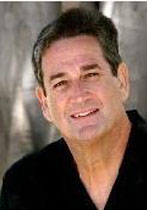By Rabbi Ben Kamin

SAN DIEGO — It is told: A rabbi lived in the Polish village of Danzig as the storm clouds began to bring in the Nazis in the late 1930s. This week’s Holocaust Remembrance Day is a chance to reflect on human behavior.
It was the rabbi’s custom to take a daily morning walk in the village and to greet every person he met. At the outskirts of the town, he would greet a rather unfriendly Polish Volksdeutche (an ethnic German) named Muller.
“Gutmorgen, Herr Muller,” the rabbi would declare. “Gutmorgen, Herr Rabbiner,” would come the reply. This happened every day, until the war and the genocide of Jews devoured Europe. Herr Muller donned an S.S. uniform and the rabbi, like almost every single Polish Jew, would be engulfed by the night. The fact is that the rabbi lost every member of his family in the death camp of Treblinka, and eventually wound up being deported to Auschwitz.
Now the rabbi was herded off the ghastly cattle train and, wearing a striped uniform, his head and beard shaven and his eyes sick with starvation and disease, he stood in the selection line. It was morning.
A man wearing white gloves and a crisp uniform sat at a desk and pointed each Jew in a direction:“Right! Left, left, left!” Right was life, left was immediate death. The rabbi drew near the table, and saw the S.S. officer who did not look up momentarily.
Gathering all his remaining strength and courage, the rabbi said: “Gutmorgen, Herr Muller.” The officer looked up. A faint smile of recognition was visible under the cap adorned with skull and bones. “Gutmorgen, Herr Rabbiner.” The hand went up and pointed—right. The rabbi lived to tell the story.
This is a most exceptional case, obviously. But it tells us that when a human face and a human voice intervene in the relentless cavalcade of hate, then we will more likely live together. We will never share the same theologies, and we will never overcome our dangerous insecurities—our need to conquer and subdue. But we will always share our humanity.
As Hillel wrote in the Talmud, “In a place where there are no human beings, you be a human being.”
*
Rabbi Kamin is a freelance writer based in San Diego. He may be contacted at ben.kamin@sdjewishworld.com